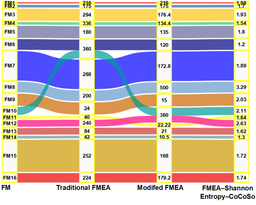First Surgical Oncology Summerschool in Malawi, 2022
Cancer in Sub-Saharan Africa is rapidly increasing, causing more than 1 million new cases and 500,000 cancer-related deaths annually. Surgery is often the primary approach, but residents lack sufficient training in surgical oncology. Additional education should be implemented in their curriculum.
Published in Social Sciences, Cancer, and Education
Like
Be the first to like this
A 5-day pilot course covering the spectrum of surgical oncologic disease and treatment options for the most relevant cancer types was developed for the Malawian context and conducted in August 2022. Participants were surgical and gynaecological residents from the country's training program (COSECSA). Lecturers consisted of teams of combined medical specialists from high and low-resource settings preparing their topics together. The impact of the training was measured using the Kirkpatricks evaluation tool.
Follow the Topic
Cervical Cancer
Life Sciences > Biological Sciences > Cancer Biology > Cancers > Gynaecological Cancer > Cervical Cancer
Oncology
Life Sciences > Health Sciences > Clinical Medicine > Oncology
Surgical Oncology
Life Sciences > Biological Sciences > Cancer Biology > Cancer Therapy > Surgical Oncology
Medical Education
Humanities and Social Sciences > Education > Professional and Vocational Education > Medical Education
Paediatric Cancer
Life Sciences > Biological Sciences > Cancer Biology > Cancers > Paediatric Cancer
Global Health
Humanities and Social Sciences > Society > Sociology > Health, Medicine and Society > Global Health






Please sign in or register for FREE
If you are a registered user on Research Communities by Springer Nature, please sign in